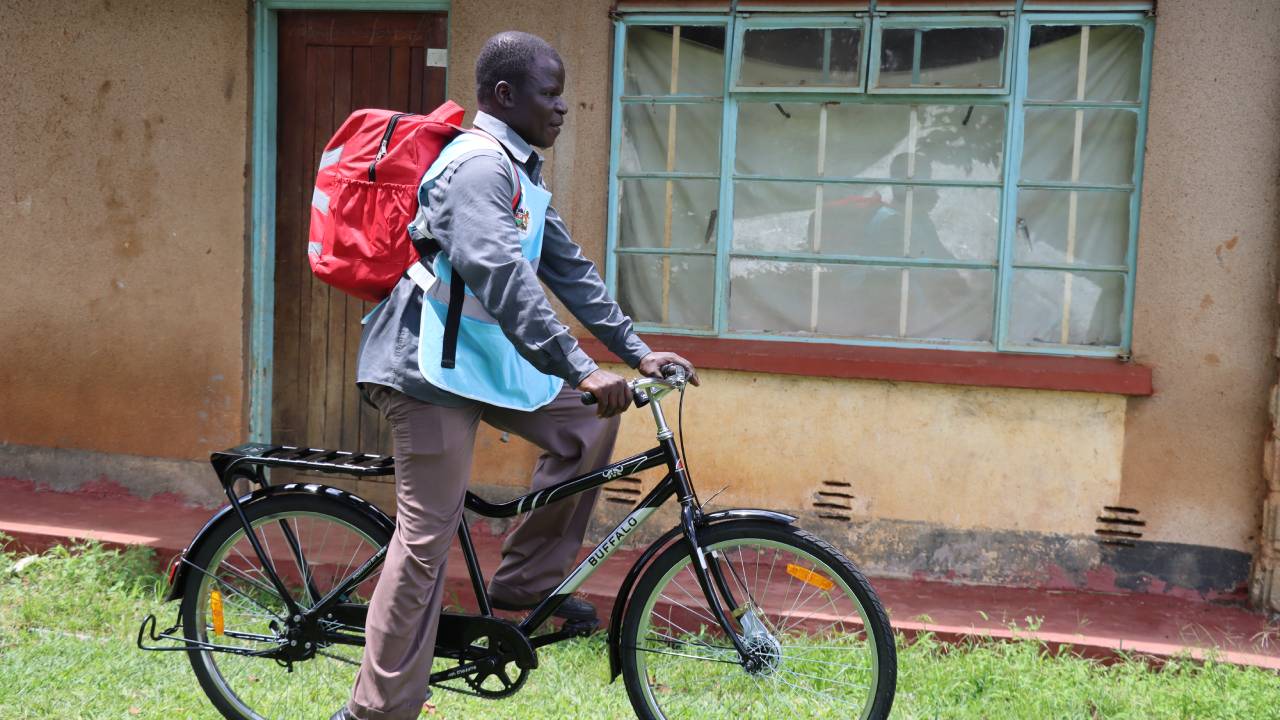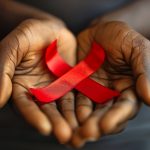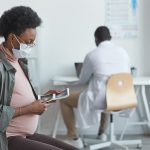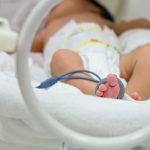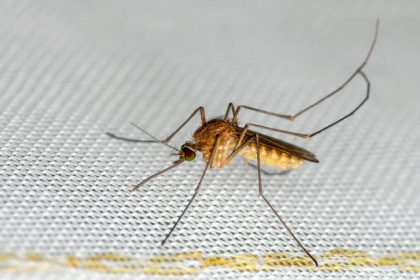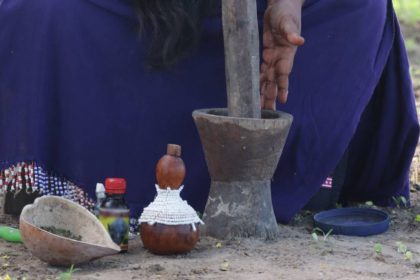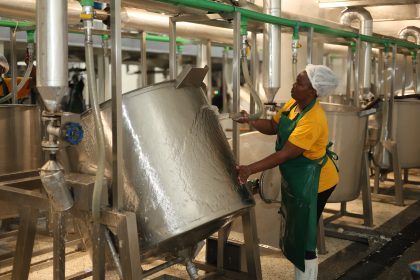Community Health Promoters on bicycles now reach more homes with malaria tests, treatments, and life-saving speed, even for pregnant women—all while dodging potholes and downpours.
At dawn in Kingandole ward, Butula constituency in Busia County, Patrick Abuko ties his medical kit onto his back and sets off on foot. With 125 households under his care spread over five kilometres, the Community Health Promoter (CHP) spends up to five hours to reach them.
Day after day for eight years—through dust and brutal sun—this community health worker (first a Volunteer, now a CHP) has carried malaria tests and treatments to every last home in his village.
“A whole month can pass without managing all the households,” Abuko explains. “If someone called with an emergency, I would delay, not because I didn’t care, but I had no means of transport.”
A partnership between Amref Health Africa and GlaxoSmithKline (GSK), working with World Bicycle Relief, provided 420 Community Health Promoters (CHPs) in Busia and Siaya counties with bicycles worth Ksh4.5 million to support malaria elimination efforts. The CHPs now use the Buffalo Bicycles to reach more households efficiently, strengthening community health.
With each pedal, we are rewriting the story of malaria, one ride, one visit, and one life saved at a time
The move is part of the ‘Primary Health Care for Malaria Elimination’ project in Kenya’s malaria-endemic zones. For Abuko, the new bicycle means “We will reduce deaths in the community. Pregnant women and young children will be reached in time, and even school attendance will improve as children will be treated early.”
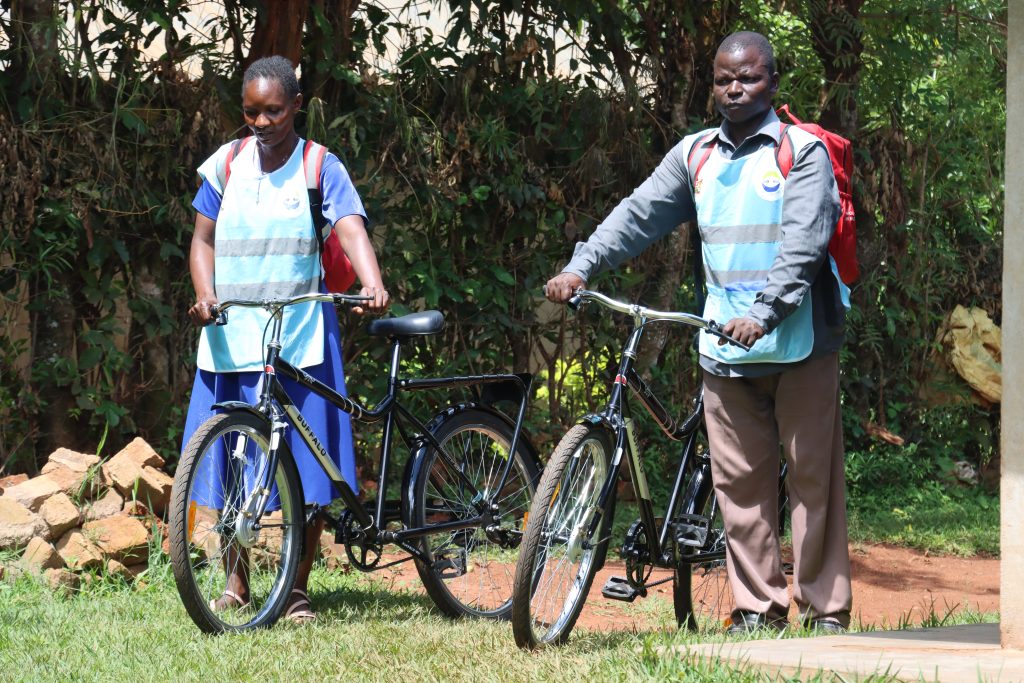
Seliphar Olukali, a CHP from Kingandole B area in Busava village, Busia County, who oversees over 100 households, says with the bicycles, “I can visit everyone, make timely referrals, and do proper follow-ups” which was previously not possible. “With each pedal stroke, we are rewriting the story of malaria in Busia, one ride, one visit, and one life saved at a time.”
Busia’s malaria prevalence is thrice higher than other surrounding counties, while Valerian Karani, Busia County Malaria Coordinator, adds that “Prevalence of malaria in Busia is six times higher compared to the national malaria prevalence.”
According to the 2020 Kenya Malaria Indicator Survey, malaria prevalence among children aged 6 months to 14 years was 6 per cent nationally, but Busia County recorded a much higher rate at 38.5 per cent, followed by Siaya at 28.8 percent and Kisumu at 15.6 percent, making these counties among the most affected in the country.
Turnaround time will drastically reduce with the use of donated bicycles
Karani said that in 2024, Community Health Promoters (CHPs) reported 62 percent of all confirmed malaria cases in Busia, highlighting their key role in surveillance and care, and noted that since each CHP typically serves 150 to 200 households, the provision of bicycles now allows them to reach more families quickly and provide timely testing, treatment, and referrals for malaria.
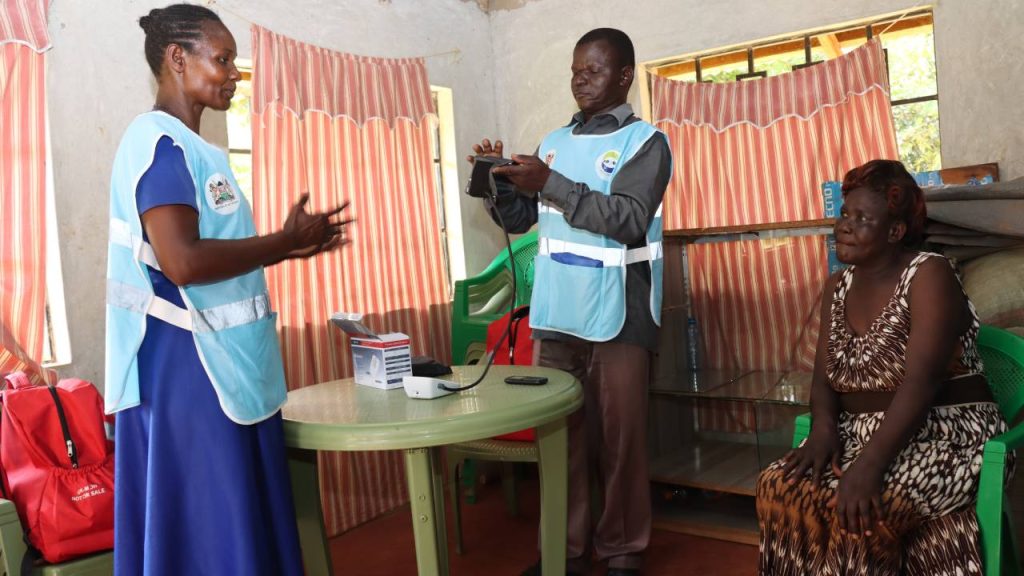
“Turnaround time will drastically reduce with the use of bicycles, and we expect a sharp drop in malaria incidence at the community level,” Karani said.
Electine Apondi, a community member from Kingandole Ward in Busia County, said CHPs have significantly improved access to healthcare at Level 1 facilities.
“One night, my grandchild fell seriously ill,” recalled Apondi. “It was late, and we didn’t know what to do. I called our local CHP, and he rode his bicycle all the way to our home.”
Despite the darkness and distance, the CHP arrived and ferried the ailing child to Khunganyu Sub-County Hospital, where doctors found “the child had severe malaria and began treatment immediately. If he hadn’t come that fast, I don’t know what would have happened.”
Busia now has around 600 bicycles, but that number is still too low to meet the needs on the ground
Augustine Ochieng from Butunyi village in Butula constituency said CHPs played a crucial role in ensuring his wife delivered safely after “My wife went into labour, and the local CHP visited and quickly noticed that the situation was complicated” and referred her to the nearest health facility before doctors at the County Hospital, “determined she needed an emergency Caesarean Section. Thanks to the timely referral by the CHP, she was able to receive the right care on time. Both my wife and baby are healthy today because of that swift action.”
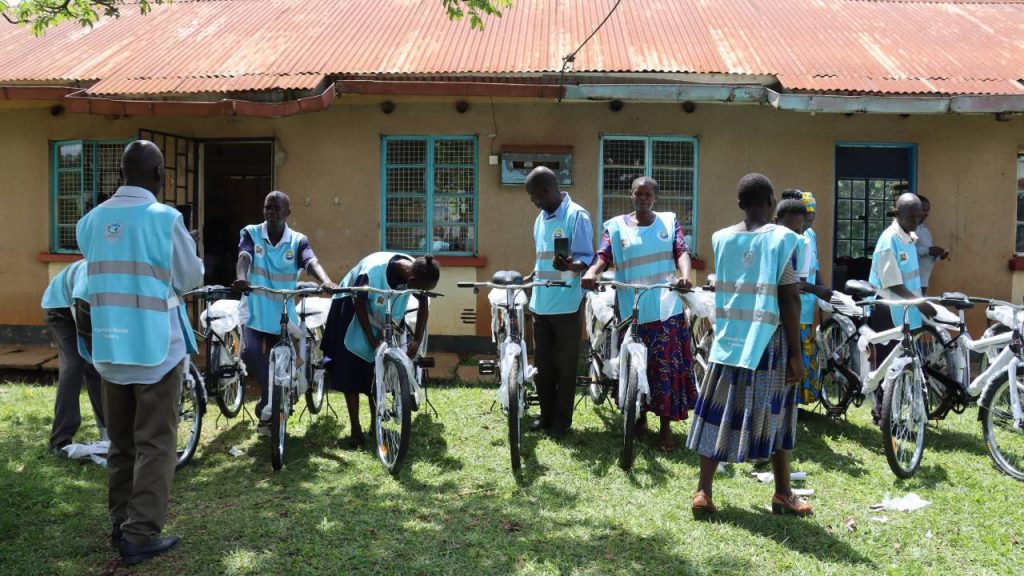
Buffalo Bicycles representative Peter Mabonga noted that the 420 bicycles are a good start, but more intervention is needed. “Busia now has around 600 bicycles, but that number is still too low to meet the needs on the ground. Every CHP should have a bicycle.”
Amref Kenya’s Deputy Country Director, Gilbert Wangalwa stated that the bicycle initiative supports Kenya’s 2030 malaria eradication goal by strengthening CHPs’ mobility, allowing faster household reach, timely testing/treatment, and quick referrals—emphasising that such comprehensive interventions and partnerships are essential for success.
Wangalwa noted that various studies and field data by Amref Health Africa have shown that CHPs equipped with transportation result in more home visits, increased community awareness of preventive measures like the use of long-lasting insecticidal nets (LLINs) and environmental hygiene, thus leading to improved health outcomes.
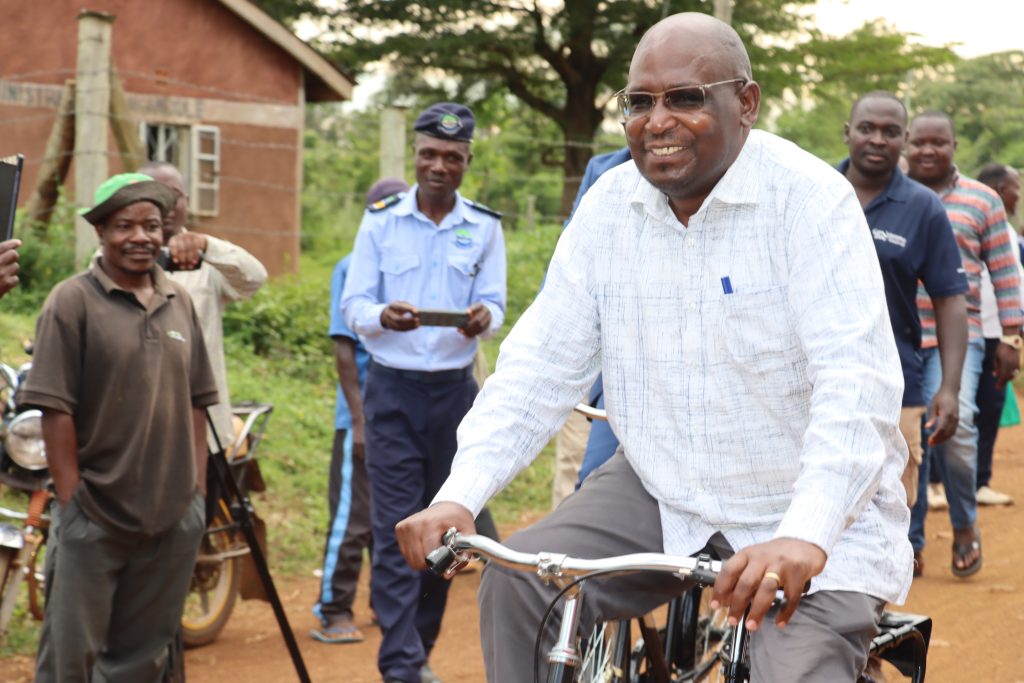
“Sustainable Development Goal 3 targets a 90 per cent reduction in malaria by 2030. But we cannot achieve this without investing in frontline health workers. In Africa, only four African countries are malaria free and as a country, we should join that league in the next five years,” said Wangalwa.
As of May 2025, WHO has certified four African nations as malaria-free: Mauritius (first in 1973), followed by Morocco (2010), Algeria (2019), and, most recently, Cape Verde in January 2024.
Wangalwa added that malaria remains a leading cause of hospital visits among women and children in Kenya, and, “With Busia’s prevalence at 38.5 per cent, urgent action is needed. The partnership with GSK and the support from the Global Fund through Amref is helping us turn the tide.”
Financial autonomy enables facilities to procure essential drugs and medical commodities promptly
Arthur Odera, the Deputy Governor of Busia County and the County Executive Committee Member (CECM) of Health, emphasized the need for enhancing improved mobility and regular stipends for CHPs. This is besides enacting enabling policies like the Busia County Facility Improvement Financing (FIF) policy 2024, which allows health facilities to retain funds thus enabling them “to procure essential drugs and medical commodities, ensuring CHPs have necessary resources to serve their communities effectively.”
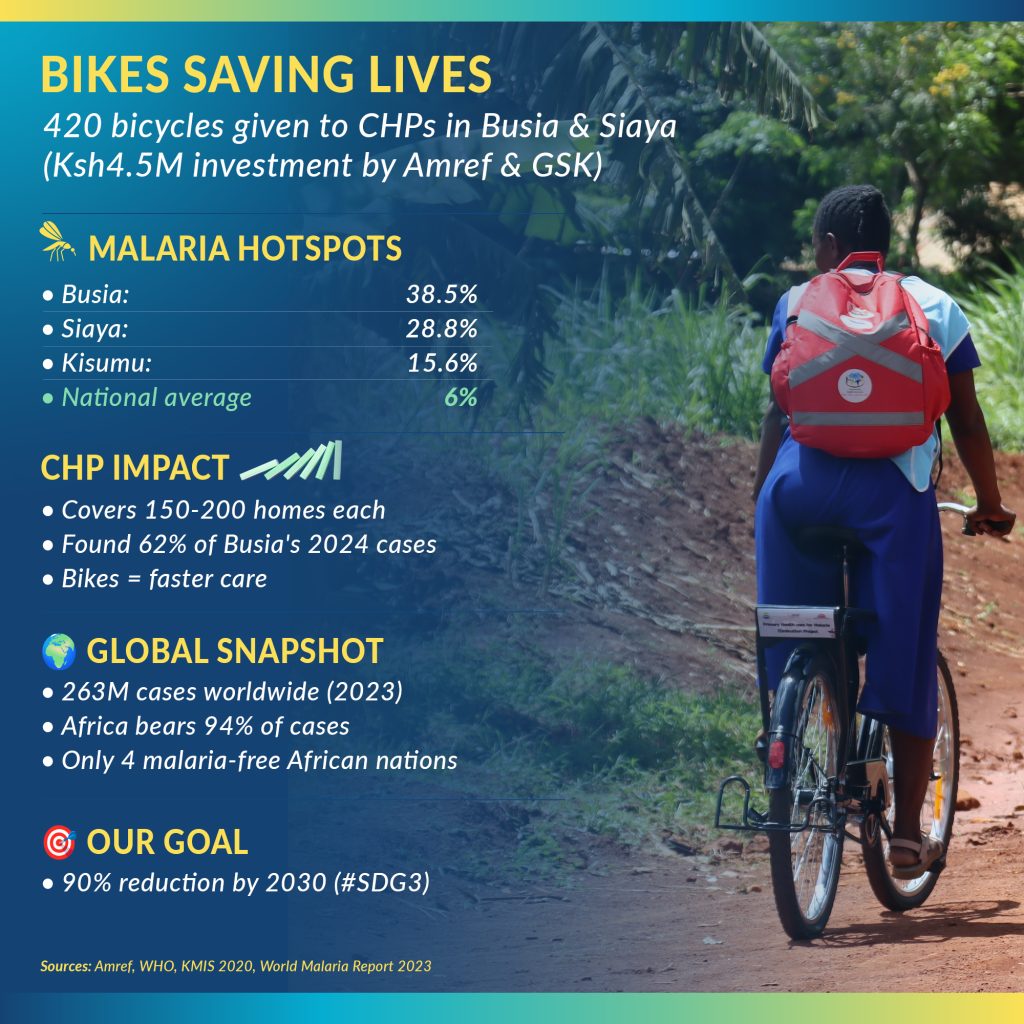
Despite global efforts, malaria cases surged to 263 million in 2023 (up from 252 million), with Africa shouldering 94 percent of cases and 95 percent of deaths—where a child dies every minute, while Kenya faces 3.5 million annual cases concentrated in 14 endemic counties across Lake (Siaya, Kisumu, Migori, Homa Bay, Kakamega, Vihiga, Bungoma, Busia) and Coast (Mombasa, Kwale, Kilifi, Lamu, Taita Taveta, Tana River) regions, where year-round transmission driven by climate sustains malaria as 13-15 per cent of all outpatient visits, per WHO and Amref reports.



